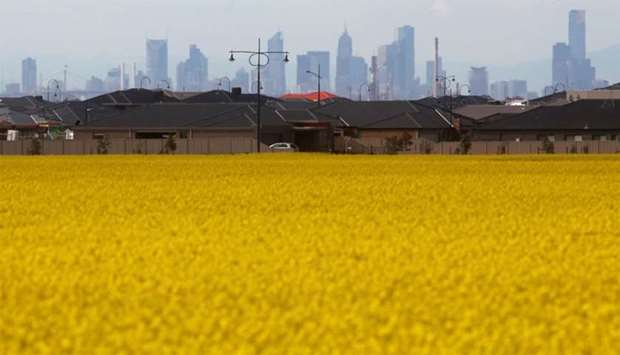Australia announced tougher restrictions on foreign buyers of agricultural land and electricity infrastructure on Thursday amid fears over rising Chinese influence.
Foreign investors now need to demonstrate when purchasing farmland worth more than Aus$15 million (US$12 million) that the property has previously been widely marketed to locals for a month to allow them an adequate opportunity to buy.
Treasurer Scott Morrison insisted Canberra still welcomed foreign investment in agricultural land ‘where it is not contrary to the national interest’.
In a similar vein, foreign purchases of electricity infrastructure will also come under greater scrutiny, with a range of new restrictions including an assessment of the ‘cumulative level of ownership within a sector’.
‘Electricity distribution and transmission infrastructure are critical national assets and a key national security safeguard is the diversity of ownership of these assets,’ Morrison said.
‘The government is committed to an open foreign investment regime that strikes the right balance in managing national security risks, while promoting job opportunities and enabling economic growth.’
The announcement comes amid growing concern over Chinese influence in Australia, although China was not cited in the latest amendments.
The Chinese foreign ministry said Beijing ‘always encourages’ Chinese companies to abide by local laws and regulations.
‘But at the same time we also hope that host countries can create enabling, open, fair and transparent environment for Chinese enterprises' investment and operation in their countries,’ ministry spokeswoman Hua Chunying told a regular press briefing.
- Spy warnings -
Prime Minister Malcolm Turnbull last year announced wide-ranging reforms to espionage and foreign interference legislation, singling out China as a focus of concern, citing ‘disturbing reports’ about Beijing's influence.
It came after he ordered an inquiry following media revelations that the national spy agency warned political leaders two years ago about receiving donations from two billionaires with links to the Chinese Communist Party.
On Wednesday the Australian Security Intelligence Organisation (ASIO), the country's spy agency, told a parliamentary inquiry that the foreign espionage threat was now greater than during the Cold War.
‘In the current climate, we are facing a raft of different countries that are seeking to conduct espionage and foreign interference,’ ASIO deputy director Peter Vickery said.
‘It is a lot more blurred in a sense, there are more state actors out there than there were during that (Cold War) time.’
Australian senator Sam Dastyari, a one-time high-profile powerbroker, announced late last year his resignation from parliament after heavy scrutiny over his relationship with a wealthy political donor associated with the Chinese Communist Party.
Beijing has furiously responded to the rhetoric it says is ‘full of prejudices’ and lodged a diplomatic complaint.
In late 2016, Morrison blocked the sale of the Kidman cattle empire -- a vast Outback estate which covers 1.3 percent of Australia's land mass -- to foreign investors on national interest grounds.
The year before, the government tightened scrutiny on overseas investment in agricultural land -- lowering the level at which purchases are screened from Aus$252 million to a cumulative total of Aus$15 million.

